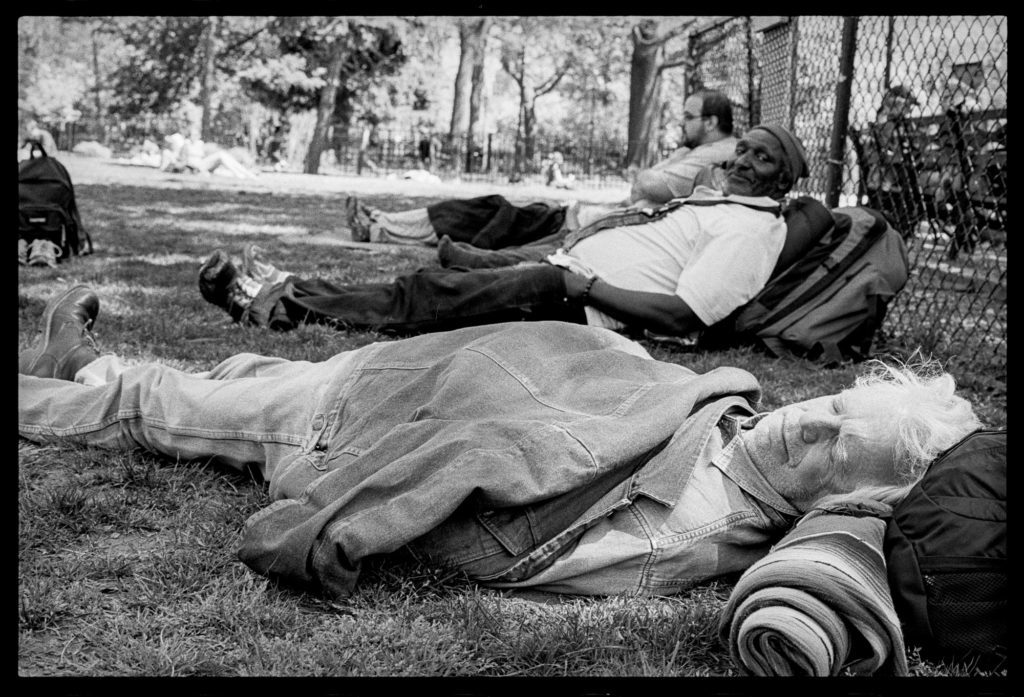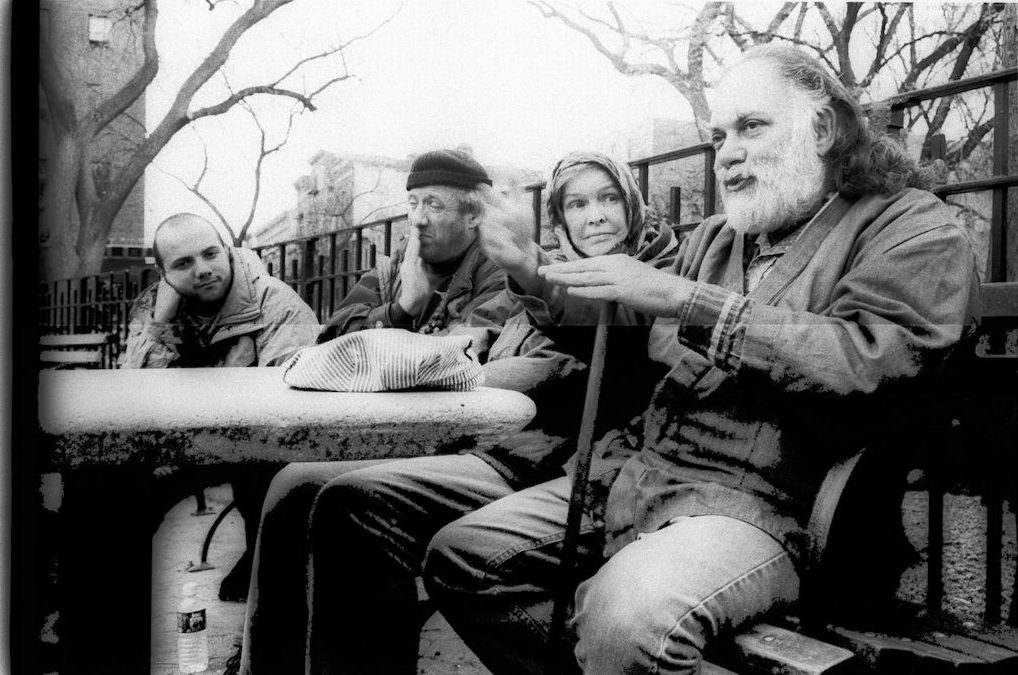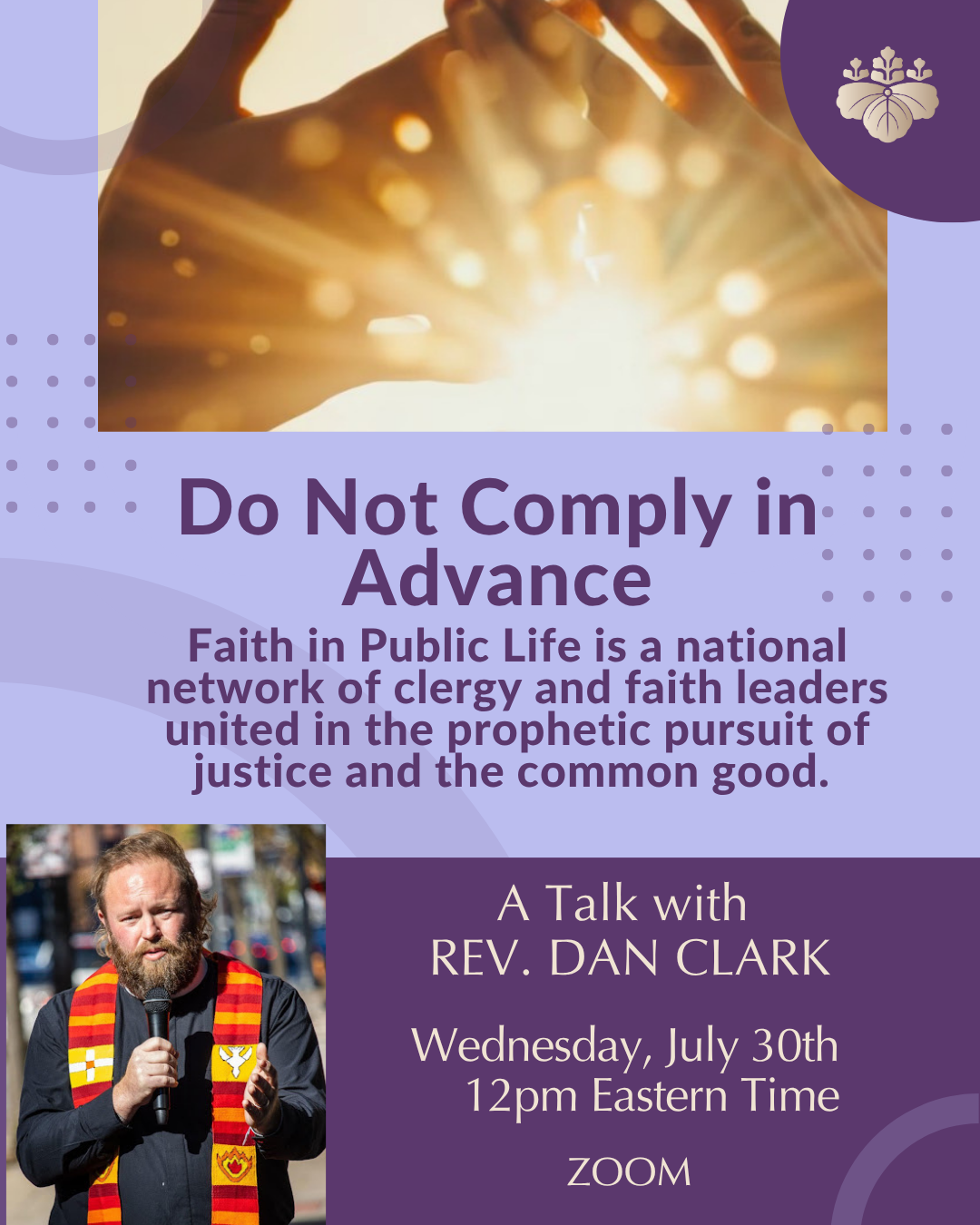Retraite dans la rue

- Grover Genro Gauntt - Chef de retraite de rue
"Quand nous allons... témoigner de la vie dans la rue, nous nous offrons. Pas de couvertures, pas de nourriture, pas de vêtements, juste nous-mêmes."
– de Bearing Witness de Bernie Glassman
À l’occasion du 55e anniversaire de Bernie en janvier 1994, il a dirigé la première retraite de rue à Washington DC, réfléchissant à la question de savoir quoi faire pour servir ceux qui sont rejetés par la société, ceux qui vivent dans la pauvreté et ceux qui ont le sida. De retour chez lui, il a discuté de sa vision d’un conteneur pour les personnes souhaitant s’engager socialement sur le plan spirituel avec sa défunte épouse, Sensei Sandra Jishu Holmes. Ils ont décidé de développer l’Ordre Zen Peacemaker, un ordre religieux avec une forte composante d’action sociale qui témoignerait dans les rues, sur les sites d’atrocités et rencontrerait les troubles du monde.

Street Retreat participants spend the week on the street, begging for money, finding food, shelter, and bathrooms. In doing this they are given a powerful opportunity to reflect on themselves and others. By spending this time on the street, participants come closer to the lives of those who live on the streets, reflect on giving and impermanence, and recognize the humanity all people share.
All retreats share some features: participants will be together most of the time, breaking into smaller groups for short periods during the day, always secured by buddies; the full group gathers twice a day for meditation, the Gate of Sweet Nectar liturgy, and sharing circles using the Way of Council; nights are spent together as a group.
From ‘Plunges,’ spring many other practice forms, including the Bearing Witness retreats in Auschwitz-Birkenau, Rwanda, Bosnia-Herzegovina, and the Native American plunges.
Street retreats have been conducted in many cities, from Rio de Janeiro to Jerusalem, from Paris to Piraeus. Sometimes they are coupled with a theme, such as bearing witness to refugees or tracking the path of arms and wars.
– Bernie Glassman ( entretien de 1999 )
- Do not shave or wash your hair for five days before the retreat. This way the retreat experience begins before leaving home.
- Besides the clothes you are wearing bring only an empty bag (shopping, plastic) or small, not-new day pack for collecting food from shelters. Women may bring one change of underwear and women’s hygiene products. Wear old clothes, as many layers as you feel appropriate for the time of year. Bring or wear a light blanket that will roll up.
- Bring a poncho or some kind of rain gear, preferably something old or makeshift.
- Wear good, but not new, walking shoes. The retreat involves a great deal of walking.
- Bring one piece of photo ID only, your driver’s license or a state ID.
- Do not bring any money, credit cards, illegal drugs, alcohol, weapons, or cellphones.
- Do not wear any jewelry, including earrings and watches.
- Bring no books, conveniences or personal items like toothbrushes.
- Prescription medications are fine.
- Bring a plastic water bottle if you like, or grab one from a trash can.
- Participants will sleep on the streets and avoid shelters in order to preserve beds for those in need.
Registration fees and how they are used vary. Usually, most of the fee is donated to homeless services that supported participants during the retreat, with a portion offered to the retreat’s guiding teacher. Sometimes participants are encouraged or required to raise the money for their registration fee by asking for support from friends, family, and associates, so begging can start right from the beginning. In the Zen Peacemakers tradition this kind of begging is called Mala practice, since the practitioner « wears » the support of everyone who donated to their cause like a mala necklace. When doing a mala you explain to your supporters your reasons for attending a Street Retreat, and are encouraged to report back to them afterwards as a way of returning their gift. Mala practitioners are often surprised at the messages and support they get. You can learn more about Mala Practice here.
Les retraites de rue sont proposées par des leaders reconnus et des groupes affiliés à ZPI.
Visitez le site de nos membres pour une liste de tous les événements à venir.
Pour en savoir plus sur le témoignage de sans-abrisme, lisez Témoigner : les leçons d’un maître zen pour vivre une vie qui compte par Bernie Glassman.



